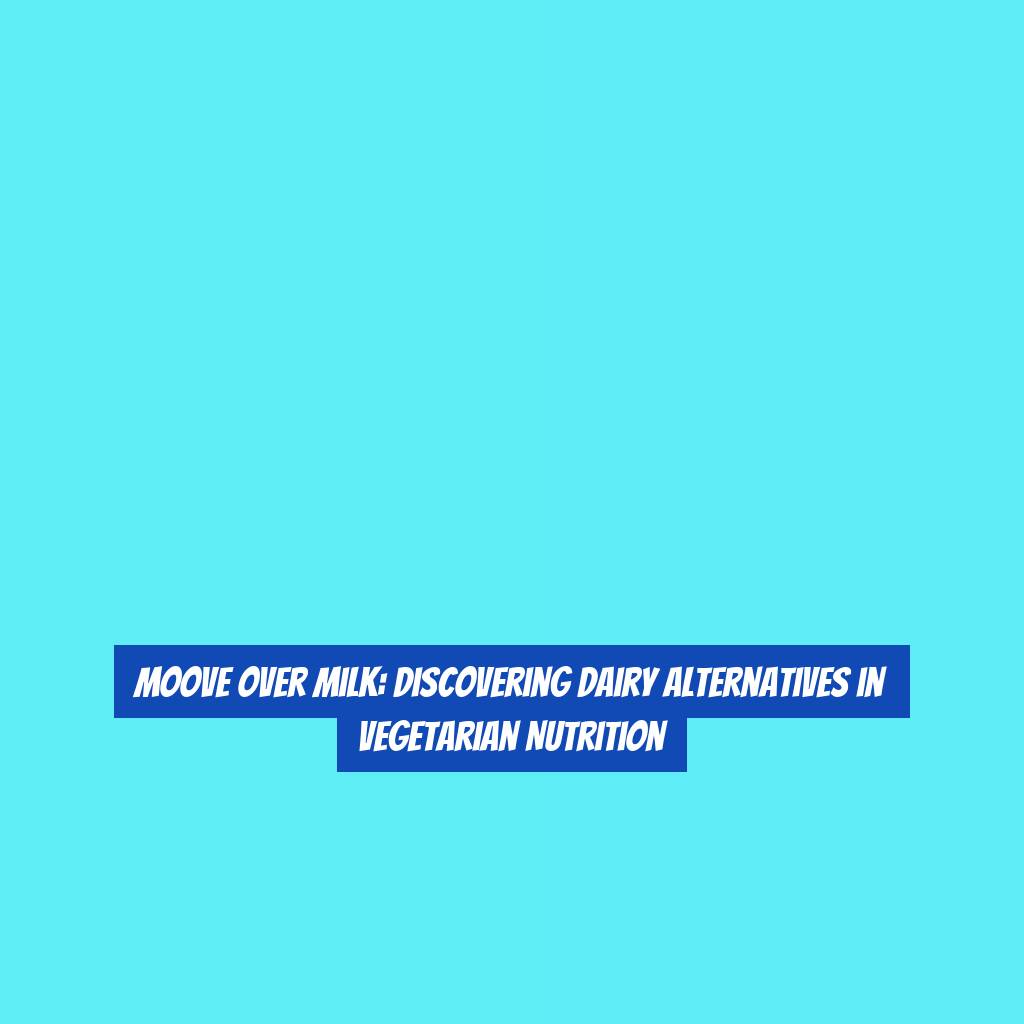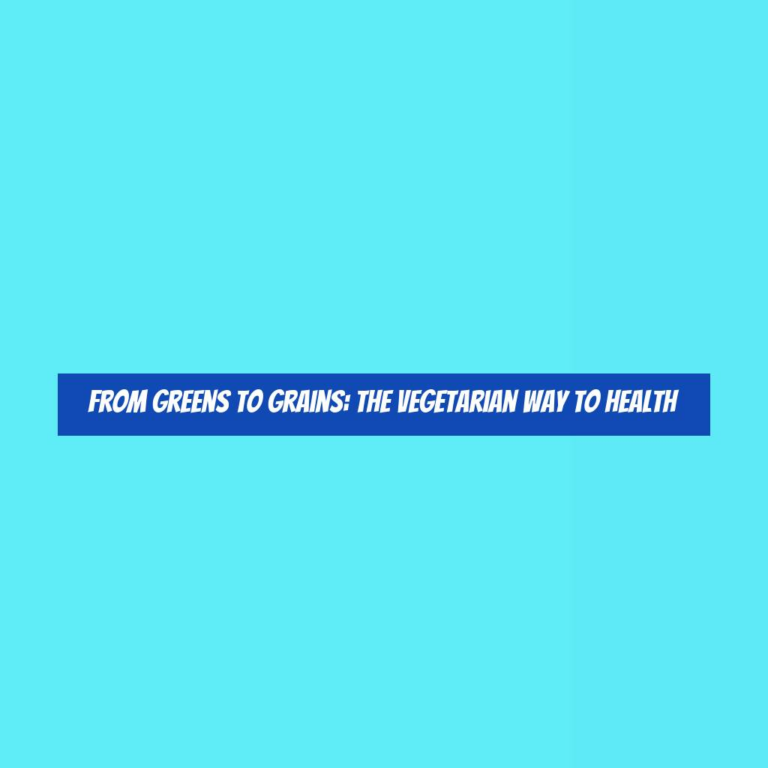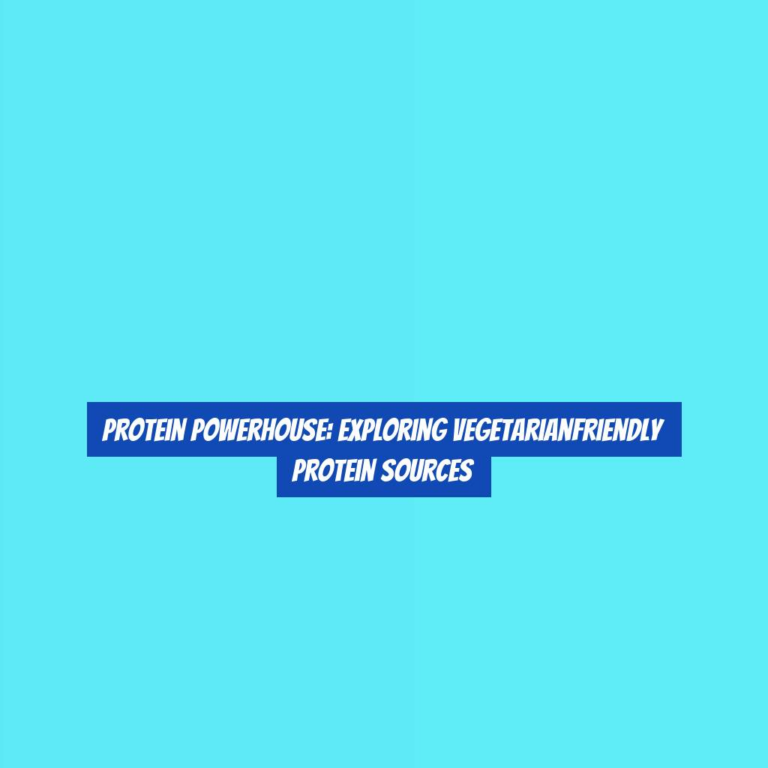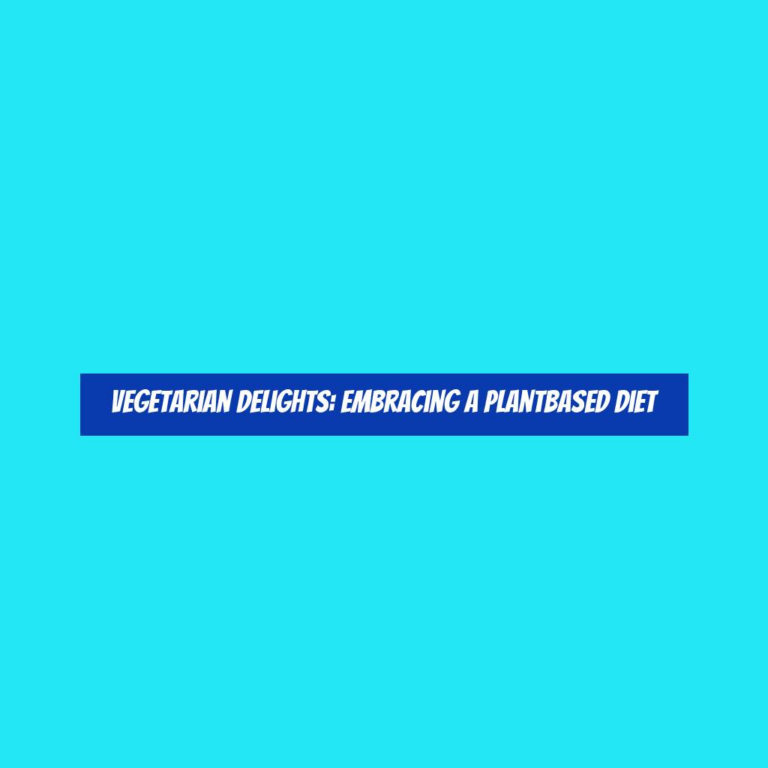Moove Over Milk: Discovering Dairy Alternatives in Vegetarian Nutrition
You may have never considered dairy alternatives as a vegetarian, but thereG??s a whole world of nutritious and delicious options waiting for you. From creamy oat milk to tangy coconut yogurt, the world of dairy alternatives is vast and varied.
But how do you know which ones are best for your nutritional needs? And how can you seamlessly incorporate them into your diet without sacrificing flavor or texture?
In this discussion, weG??ll explore the nutritional benefits of dairy alternatives, popular options for vegetarians, and practical tips for using them in your everyday cooking and baking. Whether youG??re lactose intolerant, vegan, or simply looking to expand your palate, you wonG??t want to miss out on the valuable insights we have to offer.
Nutritional Benefits of Dairy Alternatives
When incorporating dairy alternatives into your diet, you can enjoy a wide range of nutritional benefits that support overall health and well-being. Plant-based milk alternatives such as almond, soy, and oat milk are often fortified with essential nutrients like calcium, vitamin D, and vitamin B12, providing comparable nutritional value to dairy milk.
These alternatives also offer the advantage of being lower in saturated fat and cholesterol, making them heart-healthy choices. Additionally, dairy alternatives are rich in antioxidants and phytonutrients, which can help boost your immune system and reduce inflammation in the body.
Furthermore, incorporating dairy alternatives into your diet can cater to various dietary preferences and restrictions, such as lactose intolerance or a vegan lifestyle. These alternatives are also versatile and can be used in cooking and baking as substitutes for dairy milk, cheese, and yogurt.
Popular Dairy Alternatives for Vegetarians
Popular dairy alternatives for vegetarians offer a variety of options that cater to different tastes and nutritional needs.
Soy milk, made from soybeans, is a popular choice due to its high protein content and creamy texture. ItG??s also fortified with calcium and vitamin D, making it a nutritional powerhouse.
Almond milk, on the other hand, is low in calories and features a slightly nutty flavor, making it a great option for those looking to watch their calorie intake.
Coconut milk is rich and creamy, adding a distinct tropical flavor to dishes and beverages. ItG??s also high in healthy fats, which can be beneficial for overall health.
For a tangy and probiotic-rich option, yoghurt made from coconut, almond, or soy is widely available, offering the benefits of traditional yoghurt without the dairy.
When it comes to cheese alternatives, there are various options made from nuts, soy, or tapioca, mimicking the flavors and textures of traditional cheese.
These dairy alternatives provide a range of choices for vegetarians, allowing them to enjoy their favorite foods while meeting their nutritional requirements.
Incorporating Dairy Alternatives Into Your Diet
To seamlessly integrate dairy alternatives into your diet, begin by experimenting with different options to find the ones that best suit your taste preferences and nutritional needs. With a wide array of dairy alternatives available, itG??s essential to find the ones that not only provide the nutrients you need but also satisfy your palate.
HereG??s how you can make the process of incorporating dairy alternatives into your diet a seamless and enjoyable experience:
Explore New Flavors: Trying out different dairy alternatives can be an exciting journey. It allows you to discover new flavors and textures that can add variety to your meals and snacks, making your dietary transition more enjoyable.
Embracing Change: Embrace the opportunity to broaden your culinary horizons by incorporating dairy alternatives into your favorite recipes. It can be a fulfilling experience to explore new ingredients and cooking methods, adding a sense of adventure to your meals.
Nourishing Your Body: Choosing dairy alternatives that are both nutritious and delicious can evoke a sense of empowerment and satisfaction, knowing that youG??re nourishing your body with wholesome, plant-based options.
Cooking and Baking With Dairy Alternatives
You can enhance the flavor and texture of your culinary creations by incorporating dairy alternatives into your cooking and baking recipes.
When it comes to cooking, plant-based milk such as almond, soy, or oat milk can be used as a substitute for dairy milk in savory dishes like creamy soups, sauces, and casseroles. These alternatives can also be used in baking to make moist and delicious cakes, muffins, and cookies.
Additionally, dairy-free yogurt and sour cream can be used in marinades, dressings, and dips, adding a tangy and creamy element to your dishes.
In baking, coconut oil can replace butter, while applesauce or mashed bananas can substitute for eggs, providing moisture and binding properties. When making creamy desserts like puddings or cheesecakes, cashew cream or coconut milk can create a rich and smooth texture.
Furthermore, experimenting with dairy alternatives allows for the creation of dairy-free ice creams, custards, and mousses, providing a wide range of options for those with dietary restrictions or preferences.
Addressing Common Concerns About Dairy Alternatives
Concerns about dairy alternatives often revolve around their nutritional content and potential allergens, prompting individuals to seek reliable information and guidance when considering these options for their dietary needs.
When addressing these concerns, itG??s important to consider the following:
Nutritional Balance:
Emphasize that fortified dairy alternatives can provide essential nutrients such as calcium, vitamin D, and vitamin B12, crucial for bone health and overall well-being.
Highlight the versatility of dairy alternatives, which can be incorporated into a balanced diet to ensure adequate nutrient intake.
Allergen Management:
Acknowledge that individuals with allergies must exercise caution when selecting dairy alternatives, but reassure them that there are numerous options available, including soy, almond, oat, and coconut milk, catering to various dietary restrictions.
Encourage individuals to carefully read labels and seek professional guidance to identify and avoid allergens, ensuring a safe and enjoyable experience with dairy alternatives.
Conclusion
So, next time youG??re at the grocery store, donG??t forget to check out the dairy alternatives aisle. Whether youG??re looking for a milk substitute, a creamy yogurt, or a cheesy topping, there are plenty of options to choose from.
With the nutritional benefits, delicious flavors, and versatility of dairy alternatives, thereG??s no need to feel limited in your vegetarian diet. Give them a try and see how they can enhance your meals and snacks!






